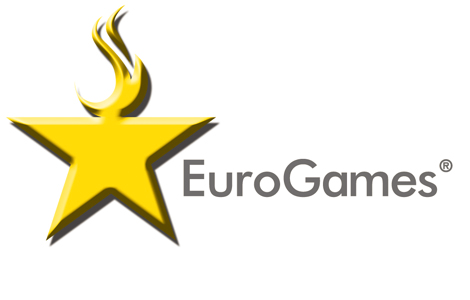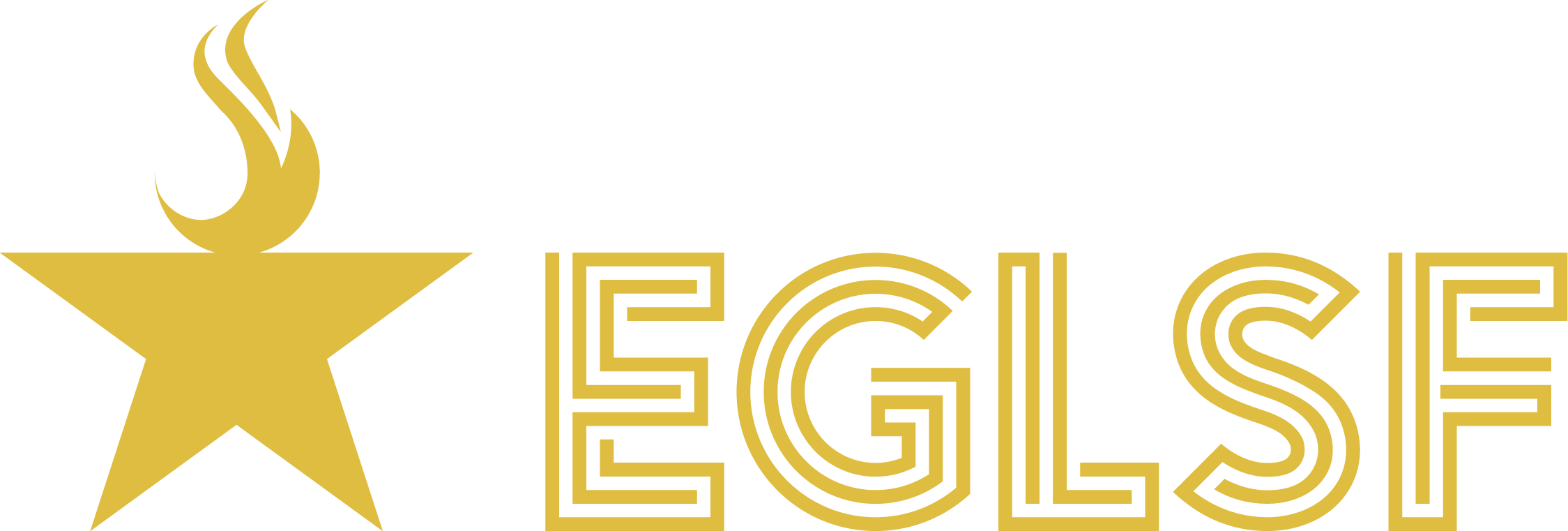
The idea of organizing EuroGames officially called the European Gay and Lesbian Multi-Sports Championships was born after the second Gay Games in San Francisco 1986. The EuroGames started on a small scale. The basic idea was to support gay and lesbian athletes in their coming out, increase the awareness of gay and lesbian sport in the greater public and to do networking between gay and lesbian sports clubs in Europe. The first EuroGames took place in The Hague in 1992. The Annual General Assembly of the EGLSF decides which bidding club or city is going to organize the EuroGames, and in order to make it possible for smaller cities to arrange such games, EuroGames are organised as either "big" or “small”, i.e. the number of sports offered is limited (usually alternates).
The Past, Present And Future EuroGames
| 1992 | The EuroGames took place for the first time in The Hague. About 300 athletes from five European countries competed in four sports: badminton, football, volleyball and basketball. TheEuroGames started on a small scale to give lesbians and gays the opportunity to meet and have fun outside the scrutiny of the greater public. The basic idea was to support gay and lesbian athletes in their coming out, increase the awareness of gay and lesbian sport in the greater public and to do networking between gay and lesbian sports clubs in Europe. | IT ALL BEGAN IN 1992. |
| 1993 | The gay and lesbian sports world met again in the administrative capital of the Netherlands. The sports were complemented by swimming and track and field. Over 540 participants, men and women from 8 European countries honored the efforts of the organizers. The second Euro- Games were officially opened by the Dutch Minister of Sport, Ms Hedy d’Ancona. As always it was the goal of the EGLSF to use the EuroGames as a tool for political action. | THE HAGUE. |
| 1995 | One year earlier, when the Frankfurter Volleyball Verein FVV and Artemis Sport Frankfurt joined Forces to host the 1995 EuroGames, the largest estimates on participation hardly exceeded 1,000 athletes for the 10 sports on offer. When registration opened, a flood of applications overwhelmed the organizers and in only a few weeks’ time additional sports locations and housing had to be found. Many other logistical problems had to be mastered as well, which the Frankfurter FVV and Artemis did with great success. In the end, over 2,000 participants enjoyed the 3rd Eurogames. Frankfurt/M. also provided the EuroGames logo “Star & Flame”. | FRANKFURT, GERMANY. |
| 1996 | The organizers were pleased to welcome 3,400 athletes competing in 17 sports between May 16th and 19th, 1996. The organisation reached a level of semi-professionalism, although the work itself was done entirely by volunteers. For the first time over 50 athletes from East European countries participated in the EuroGames: athletes from Lithuania, Poland, the Czech Republic, Hungary, Russia and Romania took part. The Berlin EuroGames provided the EuroGames hymn (“We Are Leaving” by Polaris). | BERLIN, GERMANY. SEMI-PROFESSIONAL. |
| 1997 | Due to the successful EuroGames history up to then, three cities showed interest in hosting the 1997 EuroGames. Brussels, Paris and Zurich competed to host the games. It was decided to give the EuroGames for the first time to France. The EuroGames were held in Paris from June 20th to 23rd, 1997: almost 2,000 athletes from 17 countries participated in 13 sports. The majority of outreach participants at the EuroGames V in Paris came from France, Italy and Spain. | PARIS, FRANCE. THE FIRST REAL BIDDING. |
| 2000 | The EuroGames were, however, bigger than expected. These well-organised EuroGames worked like a Swiss watch. Over 4,300 athletes participated from June 1st to 4th, 2000 in the EuroGames VI. 19 sports were offered to athletes from all across Europe. The outreach programme was a great success and 150 athletes from Southern and Eastern Europe took part. Following the example of the Gay Games Amsterdam 1998, a “Rainbow Square“ was set up where athletes and their friends could meet for drinks, food and to listen to music. | ZÜRICH, SWITZERLAND. THE 'LITTLE' BIG CITY. |
| 2001 | The EuroGames VII in August 2001 were the first ‘small’ EuroGames. Hanover (Germany) organized a very fine event with seven sports. In addition, co-operation with the local government worked out wonderfully under the auspices of Mayor Mr. H. Schmalstieg. The dancing tournament was a great success, not only because of its political statement; the competion was top level. The Hanover organisers created www.eurogames.info as a common domain to be used by all future EuroGames for information and registration. | HANOVER, GERMANY. FIRST SMALL GAMES. |
| 2003 | For the first time the EuroGames were held in Northern Europe. EuroGames VIII offered volleyball, badminton, swimming, football, track and field, dancing and a very popular sport in Scandinavia, handball. Due to the enormous success of the previous EuroGames and the Gay Games in Sydney, where many Europeans were not able to participate, registrations were high: over 2,200 participants; a large number for “small“ EuroGames. | COPENHAGEN, DENMARK. SECOND SMALL GAMES. |
| 2004 | From July 29th until the 1st of August 2004, over 5,000 participants and thousands of guests met to celebrate EuroGames IX. For the first time the major part of activities took place at the Olympic Park. Over 20 sports were offered. Participants from all over the world came to Munich for the EuroGames. | MUNICH, GERMANY. AT 1972 OLYMPIC VENUE. |
| 2005 | In June 2005 Utrecht was the first city to stage a bigger ‘small’ EuroGames with 9 competition sports. Almost 3.000 athletes from 44 countries competed at the games. For the first time field hockey was a competition sport at the EuroGames, where an Australian team was also allowed to take part. | UTRECHT, THE NETHERLANDS. |
| 2007 | Antwerp, Belgium held the 11th EuroGames. Over 2,800 athletes from 40 countries participated in 12 sports. Over 40% of competitors were female, and approximately 600 volunteers took care that everything was carried out as planned. | ANTWERP, BELGIUM. |
| 2008 | Under the slogan "Come South, Play with us!" Barcelona hosted over 5,000 athletes, coming from 40 countries and participating in 25 sports at the 12th EuroGames. | BARCELONA, SPAIN. |
| 2009 | The Second Edition of the OutGames were held in Copenhagen, where the EuroGames were successfully organised in 2003. GLISA and the organisers attracted over over 5500 participants, offering sports, culture and human rights conference. | COPENHAGEN, DENMARK |
| 2011 | The slogan "Show your colour" attracted participants to attend the 13th edition of the EuroGames in Rotterdam. | ROTTERDAM, THE NETHERLANDS |
| 2012 | The first EuroGames in Eastern Europe took place 27th June - 1st July. | BUDAPEST, HUNGARY |
| 2015 | The 15th edition of EuroGames included a wide array of activities including 28 sports, political workshops, art exhibitions, festivities and ceremonies. | STOCKHOLM, SWEDEN. |
| 2016 | Hel Yeah! Helsinki saw the return of the EuroGames to the North, and they did not disappoint. The weather shone brightly down on over 1,400 athletes from all over Europe. The organising committee from Helsinki clearly showed that the EuroGames is still one of the best LGBTIQ multisport tournaments held in Europe. | HELSINKI, FINLAND |
| 2019 | EuroGames returned to the south of Europe, where "Rights in Play" were claimed in 12 different sports at the 17th edition of EuroGames in Rome. | ROME, ITALY |
| 2020 | The 18th EuroGames were scheduled for 5.-9. August 2020. The COVID-19 pandemic resulted in cancelling all sporting and cultural events from March onwards in 2020. www.eurogames2020.de | DÜSSELDORF, GERMANY |
| 2021 | Copenhagen 2021, meaning a joint event of EuroGames & WorldPride took place 12-22 August 2021. About 2,000 athletes competed in 22 sports tournaments at locations across both cities, and more than 70 sports organisations ran public activities across Copenhagen. 3,000 people joined the WorldPride Opening Parade in Malmö and more than 10,000 people joined six WorldPride Marches in Copenhagen. Although COVID-19 affected the participants numbers, the event was a great success. www.copenhagen2021.com/eurogames | COPENHAGEN, DENMARK & MALMÖ, SWEDEN |
| 2022 | The city of Nijmegen and about 500 volunteers warmly welcomed us, about 2000 EuroGames athletes, to take part in 17 sport competitions and various side events. The slogan of the games was "Love to Move", which we were able to feel in the pride and dedication that the organisers had. The games were definitely a success. eurogames2022.eu | NIJMEGEN, THE NETHERLANDS |
| 2023 | EuroGames Bern will be remembered by the beautiful EuroGames Village and the 260 rainbow flags the city was decorated with and which we got admire during the marches at the Opening Ceremony and Bern Pride. During the four days, there were competitions in 20 different sports in which 2233 people took part in. The event was organised by over 400 volunteers who did a great job hosting the games. eurogames2023.ch | BERN, SWITZERLAND |
Statistics of Past EuroGames
| Edition | Year | Location | Country | Participants | from countries | # of sports | Website | |
|---|---|---|---|---|---|---|---|---|
| I | 1992 | The Hague | Netherlands | 300 | 5 | 4 | ||
| II | 1993 | The Hague | Netherlands | 540 | 8 | 6 | ||
| III | 1995 | Frankfurt | Germany | 2000 | 13 | |||
| IV | 1996 | Berlin | Germany | 3247 | 18 | 17 | here | |
| V | 1997 | Paris | France | 2000 | 18 | 17 | here | |
| VI | 2000 | Zurich | Switzerland | 4500 | 19 | here | ||
| VII | 2001 | Hanover | Germany | 1500 | 7 | here | ||
| VIII | 2003 | Copenhagen | Denmark | 2200 | 7 | here | ||
| IX | 2004 | Munich | Germany | 5300 | 38 | 27 | here | |
| X | 2005 | Utrecht | Netherlands | 2855 | 44 | 9 | here | |
| XI | 2007 | Antwerp | Belgium | 3650 | 38 | 11+1 | here | |
| XII | 2008 | Barcelona | Spain | >5000 | 40 | 25 | ||
| XIII | 2011 | Rotterdam | Netherlands | 26 | ||||
| XIV | 2012 | Budapest | Hungary | |||||
| XV | 2015 | Stockholm | Sweden | 4,465 | 71 | 28 | ||
| XVI | 2016 | Helsinki | Finland | 1,465 | 56 | 14 | here | |
| XVII | 2019 | Rome | Italy | 1,900 | 12 | |||
| XVIII | 2021 | Copenhagen & Malmö | Denmark & Sweden | 1,810 | 22 | here | ||
| XIX | 2022 | Nijmegen | The Netherlands | 2057 | 17 | here | ||
| XX | 2023 | Bern | Switzerland | 2233 | 20 | here |
